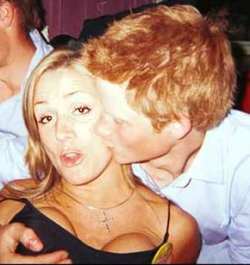 [Independent] Humiliation for Britannia as America — alerted by The Independent — considers safe haven for pilot facing deportation to Rwanda.
[Independent] Humiliation for Britannia as America — alerted by The Independent — considers safe haven for pilot facing deportation to Rwanda.The US is formally investigating whether to give safe haven to the Afghan pilot UK officials are threatening to deport to Rwanda, sparking fury from top politicians and military figures who called it "shameful" that Britannia should turn its back on the war hero.
The former air force lieutenant, who flew multiple combat missions alongside coalition forces, has been living in limbo for months after coming to the UK on a small boat while his wife and child hide from the Taliban
 ...the Pashtun equivalent of men...
...the Pashtun equivalent of men...in Afghanistan.
There was shock at defence secretary Ben Wallace’s refusal to intervene after the pilot’s application to the UK’s Afghan refugee scheme was rejected this week — a decision that left him facing the prospect of a one-way flight to Rwanda.
While British officials have refused to intervene to halt the Home Office deportation threat, the US Department of State is now considering the pilot and his family’s asylum application after The Independent first raised his case.
General Sir Richard Dannatt, the former head of the British army, said the fact that the pilot had been "cast off" by the British for the US to handle was "a complete abrogation of our responsibilities and our decency".
Air Marshal Edward Stringer, commander of RAF air operations during the Afghan conflict, said the UK government was making a "weaselling distinction" over the pilot’s war record.
Former Tory leader Sir Iain Duncan Smith said that for Britannia to "turn its back on a pilot" and fail to "do what is necessary to keep to the covenant that we protect his life as he helped to protect ours" is "shameful".
Sir Iain told The Independent: "Without heroes like this pilot, who is now seeking our help to stay here, we would not be able to fight causes which matter to democratic governments who fight for freedom."
He added: "We were allies and comrades in arms to those who helped the coalition, and now they themselves and their families are at risk from the Taliban. We have failed our pledge we gave to stand by them. To see America stand in for us and do the decent thing is galling and shameful."
Labour said Rishi Sunak’s government appeared to be applying "Operation Cold Shoulder" to Afghan heroes, describing the intervention by the US as "deeply embarrassing".

 LONDON - Prince Harry, pulled out of a 10-week tour ofduty in Afghanistan for security reasons, wants a swift return to the frontline, he said an interview published Sunday, insisting he is not a hero.
LONDON - Prince Harry, pulled out of a 10-week tour ofduty in Afghanistan for security reasons, wants a swift return to the frontline, he said an interview published Sunday, insisting he is not a hero. The head of the Army has warned that years of Government under-funding and overstretch have left troops feeling "devalued, angry and suffering from Iraq fatigue", The Sunday Telegraph can reveal.
The head of the Army has warned that years of Government under-funding and overstretch have left troops feeling "devalued, angry and suffering from Iraq fatigue", The Sunday Telegraph can reveal.  Comments by the head of the British army,
Comments by the head of the British army,  Britains Prince Harry, who was last week stopped from joining his regiments deployment to Iraq, could be sent to join troops in Afghanistan, a newspaper said on Sunday. News of the World said it had information about plans for the 22-year-old officer to join the fight against the Taliban, but was withholding key details.
Britains Prince Harry, who was last week stopped from joining his regiments deployment to Iraq, could be sent to join troops in Afghanistan, a newspaper said on Sunday. News of the World said it had information about plans for the 22-year-old officer to join the fight against the Taliban, but was withholding key details. Tony Blair has pledged that British forces would not "walk away" from Iraq or Afghanistan until their job there is complete.
Tony Blair has pledged that British forces would not "walk away" from Iraq or Afghanistan until their job there is complete.